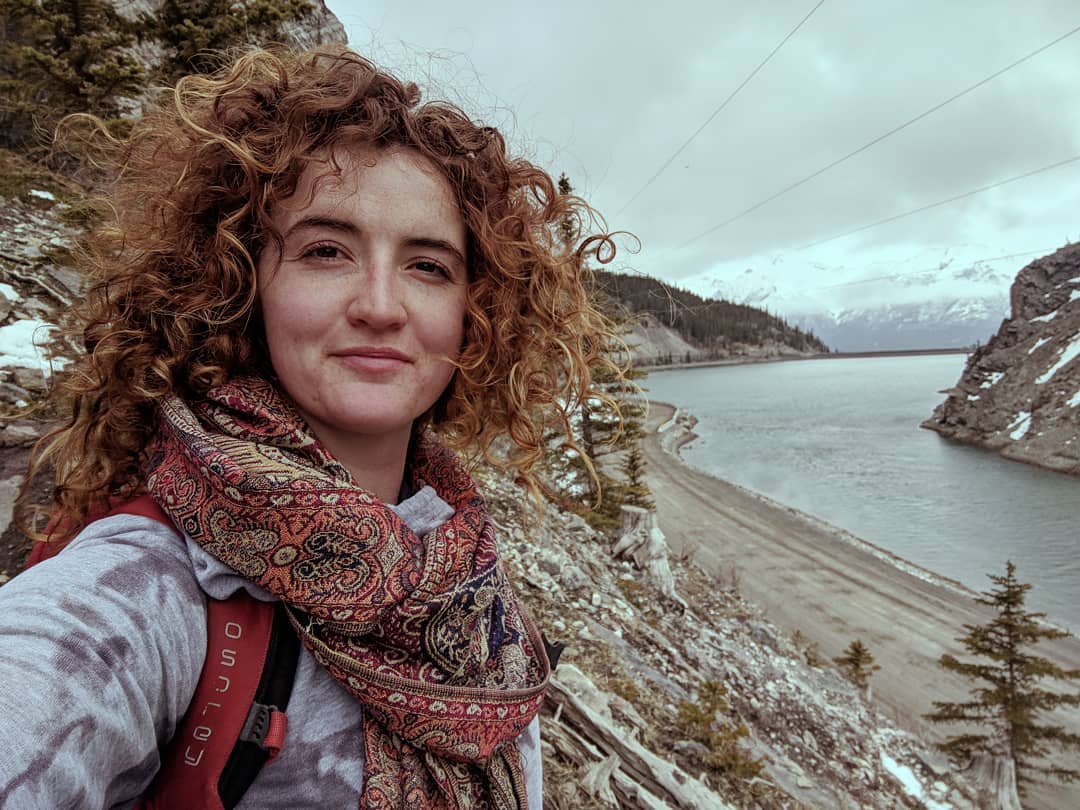‘Rehab has always been a big part of my life’
19 November 2020

What is the degree you're receiving this fall? What are your former degrees (and where are they from)?
I am receiving an MSc in Rehabilitation Science. I also have a BSc Honours in Physiology and Developmental Biology from the University of Alberta.
What drew you to the area of your study, and why are you passionate about it?
I completed an undergraduate research project — this was the first time that I experienced research and I really enjoyed it! I was able to hone my skills and grow as a person while helping advance health care. I then decided to continue this work as a master’s student and further explore the world of rehabilitation. I live with a permanent physical disability and grew up in a remote community, so rehab has always been a big part of my life.
Why did you choose the University of Alberta’s Faculty of Rehabilitation Medicine?
I loved the facilities, the expertise and the people. The community was really impactful and I wanted to continue to grow in that environment. The spaces for research, in-class learning and extracurriculars at the U of A are awesome.
What is the most remarkable thing you learned while you were a student?
How to work on an interdisciplinary team with researchers, non-academic staff and members of the public. Additionally, I saw how universal the experience of those living with disabilities is. There is a common thread to rehabilitation for everyone. Additionally, I pushed myself further outside of my comfort zone by joining a startup dedicated to increasing the ease of accessing spaces in wheelchairs and on bicycles. This was unexpected, as business was obviously not my primary choice of university degree.
What is one of your fondest memories during your time in the program?
Creating friendships and an inclusive environment within the Rehabilitation Robotics Laboratory (RRL) and also defending my thesis. The daily environment in the RRL was amazing to be around, but the day I defended my thesis work made me think, "Man, this is what university is about! This is how individuals should be challenged to grow and learn."
Did you face any significant challenges, and if so, how did you deal with them?
The virtual reality unit I used for data collection as part of my thesis is cutting-edge technology. But with that comes the harsh reality that things will constantly go wrong — things will constantly break down. I would say that recognizing that things won’t always be easy, remaining calm when things don’t work the way they should and being able to problem-solve was what emerged from that experience.
How did you manage the challenges of navigating student life under COVID-19 restrictions and remote learning?
Most of my participant recruitment was finished before COVID-19 restrictions were put in place, so that was lucky. However, I did have to finish analysing my data, write up my thesis and then defend it remotely. Although I did not get an in-person experience with these aspects of my degree, I was able to navigate it by setting up a good work space and an active routine at home.
What are you doing now? What is next for you? What are your long-term goals and aspirations?
I'm currently a research assistant with the Heroes in Mind, Advocacy and Research Consortium (HiMARC) in the Faculty of Rehabilitation Medicine. HiMARC's research deals with mental health and other related aspects of health in military members, veterans, public safety personnel and their families. I'm not sure where I'll end up in the coming years, but I believe that my work will continue to focus on rehabilitation and improving care.
What piece of advice do you wish someone had given you when you started your graduate degree in Rehabilitation Medicine?
I have always stressed the importance of work-life balance, because I need to complete daily physiotherapy to ensure I physically function well. I would stress the importance of this to incoming students. Make sure that you work hard and play hard. Take time for yourself and have fun with what you are doing. You are lucky to be where you are, so please enjoy it. When it counts, your ability to prioritize your own health will ensure you can help others.